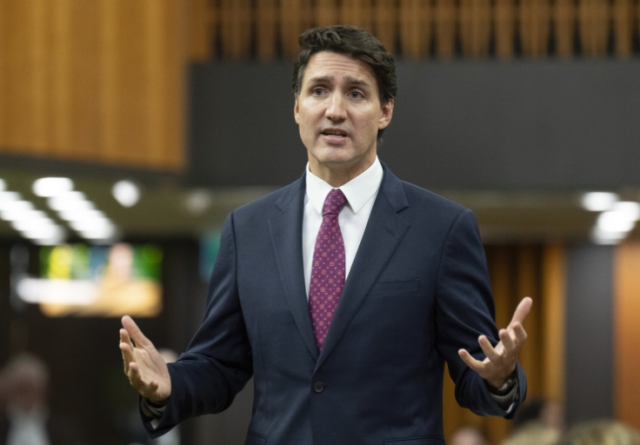Canadian Prime Minister, Justin Trudeau has announced that Canada will significantly reduce its immigration intake in the coming years, to address issues triggered by pandemic.
Canada is set to now admit 395,000 new permanent residents in 2025, down 21 percent from last year’s target of 500,000.
That figure would decrease further to 380,000 in 2026 and 365,000 in 2027.
This move will birth limits to temporary residents, such as international students and foreign workers, with a projected reduction of nearly 450,000 by 2025.
Trudeau who spoke in a news conference said the country’s ambitious immigration agenda, originally aimed at addressing labour shortages and fostering population growth, had not achieved the “right balance.”
He stated, “Our immigration system has always been responsible and flexible. But in trying to meet labour needs and sustain population growth, we didn’t get the balance quite right.”
Since his election in 2015, Trudeau has championed rising immigration rates, with a record-setting target in 2022 to address pandemic-driven labour shortages.
This approach has set Canada apart from other nations where immigration remains politically contentious, particularly in the United States, where Republican presidential nominee Donald Trump has criticised immigration policies, and across Europe, where anti-immigrant sentiments have fuelled far-right political victories.
The move has raised reactions with the Bank of Montreal’s director of economics, Robert Kavcic, saying that the reduced immigration targets would ease pressure on the economy and infrastructure, “especially in the housing sector,” where rapid population growth has driven demand beyond supply.
However, more than 100 civil society groups, including several of Canada’s largest labour unions, criticised the government’s decision.
In a letter, they stated, “This government was elected on a pro-immigration platform and promised permanent resident status for migrant workers, students, and undocumented people. Not delivering on them will be remembered at the ballot box.”
The policy change comes as public opinion in Canada shifts against higher immigration levels, driven by concerns over housing costs, health-care access, and infrastructure strains.
A recent poll by the Environics Institute showed that nearly 60 percent of Canadians believe there is “too much immigration”—the highest in 25 years.
“The balance of public opinion on immigration has effectively flipped from being acceptable to problematic,” the pollster said.
The Canadian Chamber of Commerce also expressed disappointment over the revised immigration targets, highlighting that immigration is “a key driver of economic growth.”
Diana Palmerin-Velasco, a senior director at the chamber, commented, “The future of Canada depends on getting immigration right. We can do better.”
Immigration Minister Marc Miller defended the government’s decision, acknowledging that “the volume of migration has contributed to affordability challenges.”
He cautioned against blaming immigrants for housing or economic issues.
“It is easy to blame immigrants for everything,” Miller said, adding that housing supply issues also stem from broader policy challenges, many of which fall under provincial or local jurisdictions.
Israeli airstrike killed three journalist in Lebanon
An Israeli airstrike hit a compound that housed journalists in south-eastern Lebanon, resulting in the death of three media personnel, the Lebanon’s state-run National News Agency on Friday said.
Footage aired by local station Al Jadeed captured the aftermath at the site, where a series of chalets rented by various media outlets had been devastated, with debris and cars labelled PRESS engulfed in dust.
According to the report, the Israeli army did not provide any warning of evacuation before the attack.
The pan-Arab Al-Mayadeen TV, based in Beirut, confirmed that two of its employees—camera operator Ghassan Najar and broadcast technician Mohammed Rida—were among those killed in the early hours of Friday.
Additionally, Al-Manar TV, affiliated with Hezbollah, reported the death of its camera operator, Wissam Qassim, in the strike in the Hasbaya region.
Ali Shoeib, a prominent correspondent for Al-Manar in southern Lebanon, was filmed expressing his grief over the loss of his camera operator, who had worked alongside him for several months.
In the video, aired on Al-Manar TV, Shoeib stated that the Israeli military was aware that journalists from various media organisations were present in the targeted area.
“We were reporting the news and showing the suffering of the victims and now we are the news and the victims of Israel’s crimes,” he remarked.
Earlier this week, an office belonging to Al-Mayadeen was struck on the outskirts of Beirut’s southern suburbs, according to Lebanon’s Health Ministry.
Since the outbreak of hostilities along the Lebanon-Israel border in early October last year, several journalists have lost their lives.




















